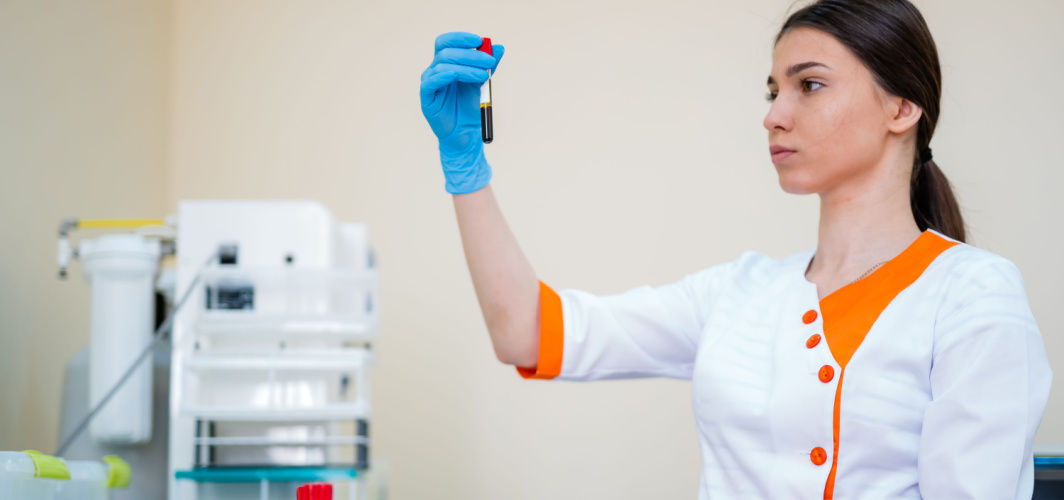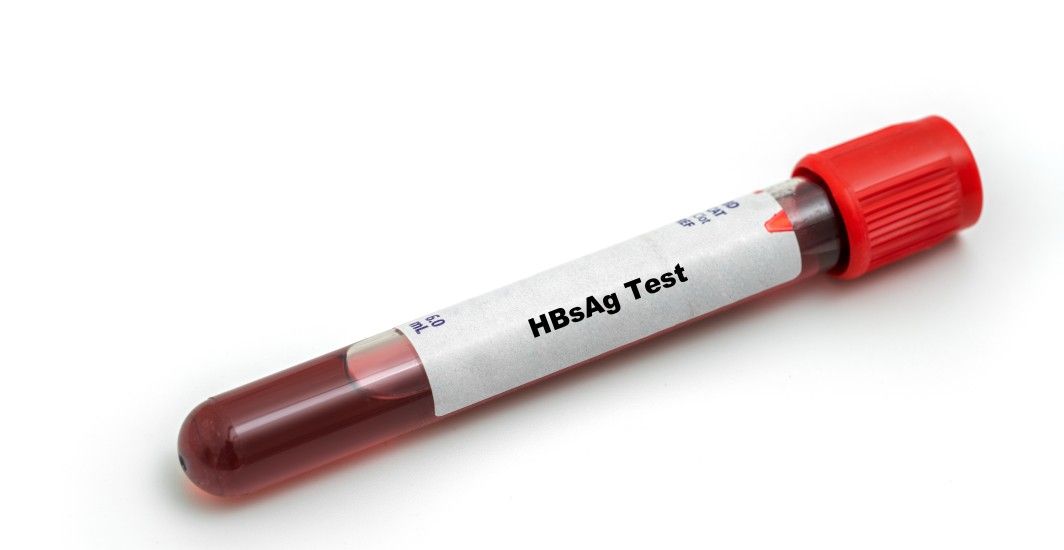General Health
Blood Cancer: Types, Causes, Symptoms, Diagnosis, Treatment
9 min read
By Apollo 24|7, Published on - 23 June 2023
Share this article
0
3 likes

Did you know blood cancer is the most commonly diagnosed cancer among children globally? Blood cancer affects the production of your blood cells, hindering your body from functioning properly. In this article, we are going to discuss everything you need to know about blood cancer.
What Are the Main Types of Blood Cancer?
The main types of blood cancer include the following:
1. Leukaemia
Leukaemia, a type of cancer found in your blood and bone marrow, is characterized by the unregulated production of abnormal white blood cells. These blood cells are ineffective in fighting infections. Instead, they end up impairing the ability of the bone marrow to produce red blood cells and platelets. Unlike other forms of cancer, leukemia does not lead to the formation of a mass tumor that is visible in imaging tests. There are four variations of leukemia:
- Acute lymphoblastic leukemia (ALL): ALL primarily affects lymphoid cells (lymphocytes) and is more common in children than adults. It can spread rapidly and requires immediate medical attention.
- Acute myeloid leukemia (AML): AML affects myeloid cells (monocytes) and causes rapid growth of abnormal cells in the bone marrow. This interferes with the production of normal blood cells. It can occur in both adults and children.
- Chronic myeloid leukemia (CML): CML is characterized by the rapid growth of myeloid cells. Typically starting slow, CML can transform into a much more aggressive form that can be life-threatening.
- Chronic lymphocytic leukemia (CLL): CLL is a slow-progressing form of leukemia that primarily affects lymphocytes. It is more common in adults than children.
2. Lymphoma
Lymphoma is a type of blood cancer affecting your body's lymphatic system. The lymphatic system removes excess fluids from your body and produces immune cells. though, lymphocytes are white blood cells that are effective in fighting infections. Lymphoma can lead to an excessive build-up of lymphocytes which can later impair your immune system. The main types of lymphoma cancer include:
- Hodgkin lymphoma (HL): HL is characterized by the presence of Reed-Sternberg cells. These cells are found in lymph nodes and are often diagnosed in adults.
- Non-Hodgkin lymphoma (NHL): It encompasses a large group of lymphomas that do not have Reed-Sternberg cells. It can originate from immune cells (B-cells or T-cells) and may involve lymph nodes, lymphoid tissues, or other organs.
3. Multiple myeloma
Myeloma refers to the cancer of the plasma cells. Plasma cells are white blood cells that are responsible for producing disease-fighting antibodies. These cells can also prevent the normal production of antibodies, thereby hampering the immune system.
4. Myelodysplastic syndrome (MDS)
It refers to a group of blood disorders that are characterized by abnormal production of blood cells in the bone marrow. MDS can also progress to myeloid leukemia in some cases.
5. Myeloproliferative neoplasms (MPNs)
MPNs are a group of disorders characterized by the overproduction of blood cells in the bone marrow. Some common examples of MPNs are polycythemia vera, essential thrombocythemia, and primary myelofibrosis.
What Are the Signs of Blood Cancer?
Signs and symptoms that might suggest blood cancer include the following -
- Persistent fatigue
- Unexplained weight loss
- Frequent infections
- Easy bruising and bleeding
- Swollen lymph nodes
- Night sweats
- Bone pain
- Shortness of breath
- Abdominal discomfort and swelling
The presence of these symptoms does not conclude cancer. The doctor may have to person multiple tests to confirm the diagnosis.
Also read: 7 Warning Signs of Cancer
When to Consult a Doctor?
Here are some points to consider when visiting a doctor:
- Unexplained symptoms: If you are experiencing any of the aforementioned symptoms then it is best to visit a doctor.
- Family history: Frequent blood scanning is advised if your family already has a history of blood-related problems.
- Recurring infections: If you continue suffering from infections that keep on happening, then a visit to the doctor is a must.
What Causes Blood Cancer?
The exact cause of cancer has not been found yet. However, some of the factors that may increase your risk of developing cancer include:
- An advanced age
- Exposure to harmful chemicals
- Habit of smoking
- Family history of cancer
- Exposure to high radiation
- Compromised immune systems
How is Blood Cancer Diagnosed?
Several types of tests and procedures that can be used to diagnose cancer include:
1. Biopsies
A biopsy is a test in which a pathologist collects samples of cells for examination. For cancers like lymphoma, a lymph node biopsy may be required. Getting your bone marrow tested can help diagnose several cancer types. The sample extracted from your bone marrow is sent to a lab and checked for abnormal cells or changes in your body. Common biopsy methods include the following:
- Bone marrow biopsy- It is a procedure where a sample of bone marrow is removed and tested for signs of cancer.
- Lymph node biopsy- In this procedure, all or a part of a lymph node is surgically extracted from the body and tested for cancer cells.
- Fine-needle aspiration- It is a procedure that involves passing a thin needle through your skin to extract tissue or fluid from a solid mass or cyst to detect signs of cancer.
- Surgical biopsy- In this procedure, a cut is made through your skin to obtain abnormal tissue, which is checked under a microscope for signs of cancer.
2. Imaging scans
Imaging scans can spot enlarged lymph nodes, which is usually a common symptom of lymphoma. They might not be able to detect cancers like leukemia because imaging scans focus mainly on visible tumors. However, they are still quite effective in detecting if the cancer has affected different parts of your body. Some popular imaging scans include:
- X-rays- It is an imaging technique that involves sending a form of electromagnetic radiation through the body to create pictures of the inside of your body.
- Computed tomography (CT scan)- A CT uses special X-ray equipment to produce detailed scans, or pictures, of areas inside your body.
- Magnetic resonance imaging (MRI)- An MRI uses radio waves, a large magnet, and a computer to create detailed 3-dimensional anatomical images.
- Positron emission tomography scan (PET scan)- A PET scan uses a radioactive drug known as a tracer to identify the biochemical or metabolic function of your organs and tissues.
- Ultrasound- This imaging procedure uses sound waves to create pictures of your tissues, organs, and other internal structures.
3. Blood tests
A complete blood count tends to understand the cell count of several components of blood including red blood cells, white blood cells, and platelets. Analyzing the substances in your blood will help your health provider understand your condition better. Effective blood tests that can help detect blood cancer include:
- Complete blood count tests (CBC)- A CBC test involves the extraction of your blood sample to analyze each component, including platelets and red and white blood cells.
- Blood smear- This test involves an examination of your blood sample to assess the number, shape, and appearance of your platelets and white and red blood cells.
- Peripheral blood flow cytometry- This test involves the extraction of a blood sample, which is analyzed to assess if blood cells, platelets, and other parts of your clotting system are working properly.
- Molecular testing- Molecular testing includes a group of tests that examine segments of DNA or RNA in your blood sample to diagnose cancer.
- Coagulation tests- In these tests, a blood sample is extracted and analyzed to assess your blood’s ability to clot.
How is blood cancer treated?
The treatment of cancer depends on its type, aggressiveness, nature, and site. Some of the most common treatment methods for blood cancer include the following:
1. Chemotherapy
Chemotherapy involves the use of anticancer drugs to stop & prevent the growth of cancer cells in your body. The treatment can also be given before the cancer surgery or transplantation of stem cells.
2. Stem cell transplantation
A stem cell transplantation infuses healthy blood-forming stem cells into your body. The cells can be collected from the bone marrow, circulating blood, and umbilical cord blood of a person.
3. Radiation therapy
Radiation therapy is done to destroy cancer cells or shrink the size of the tumor through high-energy X-rays. It can also be conducted before a cell transplant.
Also read: 7 Ways to Reduce the Risk of Cancer
What are the Signs of Remission?
Here are some general signs that might suggest remission from blood cancer in patients. They include:
- Absence of symptoms
- Normal blood cell counts
- Normal bone marrow function
- Imaging results
- Negative molecular or genetic markers
A blood cancer diagnosis can be difficult to deal with. However, with early diagnosis and prompt treatment, one can prevent the progression of cancer. For more information on blood cancer, you can talk to expert oncologists (cancer specialists).
FAQs
Q. What is blood cancer?
Blood cancer is a form of cancer that affects the production and function of blood cells in our body.
Q. How to detect blood cancer?
Blood cancer can be diagnosed through various methods including blood tests, bone marrow biopsies, and imaging scans.
Q. Which blood test can detect cancer?
Blood tests are not designed to specifically detect cancer. However, tests like complete blood count, tumor marker tests, and genetic tests provide valuable information that can help detect cancer.
Q. Can blood cancer be inherited?
Yes certain types of blood cancer such as CLL and ALL have hereditary properties. This means that it can be passed on from one generation to another.
Q. Can blood cancer recur after treatment?
Blood cancer can reoccur after treatment. However, it depends on several factors including the type and the stage of cancer.
Medically reviewed by Dr Sonia Bhatt.
General Health
Leave Comment
Recommended for you
_0.jpg?tr=q-80)
General Health
RA Factor Test – Normal Range, Purpose, Procedure, and Results Interpretation

General Health
Have You Ever Had Unprotected Sex Or A Blood Transfusion? Check What An HBsAg Test Explains
If you've had unprotected sex or a blood transfusion, an HBsAg test can reveal hepatitis B infection early, helping you take timely steps to manage and prevent complications.

General Health
Which Pathology Tests You Should Include In Routine Health Check-up?
Learn about the essential pathology tests to include in your routine health check-up. Discover their importance in detecting and preventing various diseases.
Subscribe
Sign up for our free Health Library Daily Newsletter
Get doctor-approved health tips, news, and more.
Visual Stories

Science-backed Home Remedies for Burns and Blisters
Tap to continue exploring
Recommended for you
_0.jpg?tr=q-80)
General Health
RA Factor Test – Normal Range, Purpose, Procedure, and Results Interpretation

General Health
Have You Ever Had Unprotected Sex Or A Blood Transfusion? Check What An HBsAg Test Explains
If you've had unprotected sex or a blood transfusion, an HBsAg test can reveal hepatitis B infection early, helping you take timely steps to manage and prevent complications.

General Health
Which Pathology Tests You Should Include In Routine Health Check-up?
Learn about the essential pathology tests to include in your routine health check-up. Discover their importance in detecting and preventing various diseases.